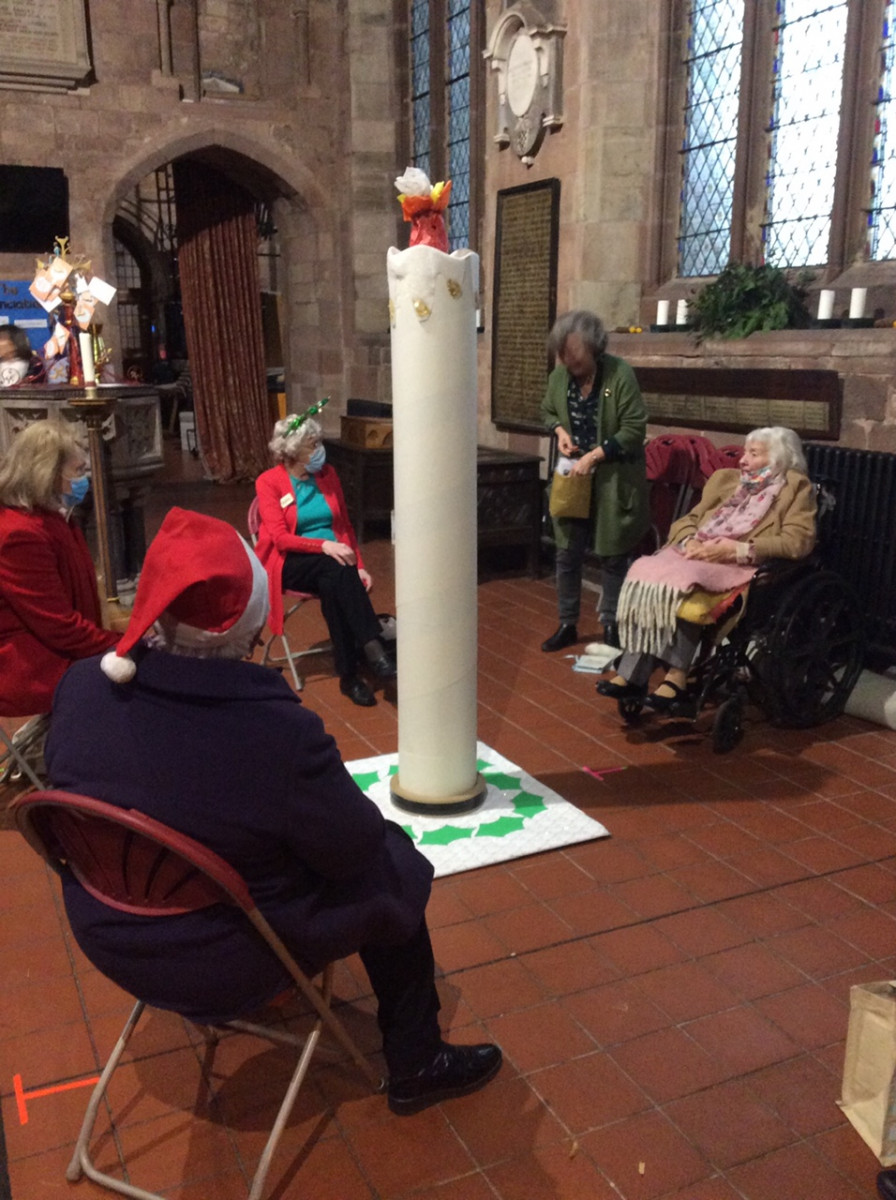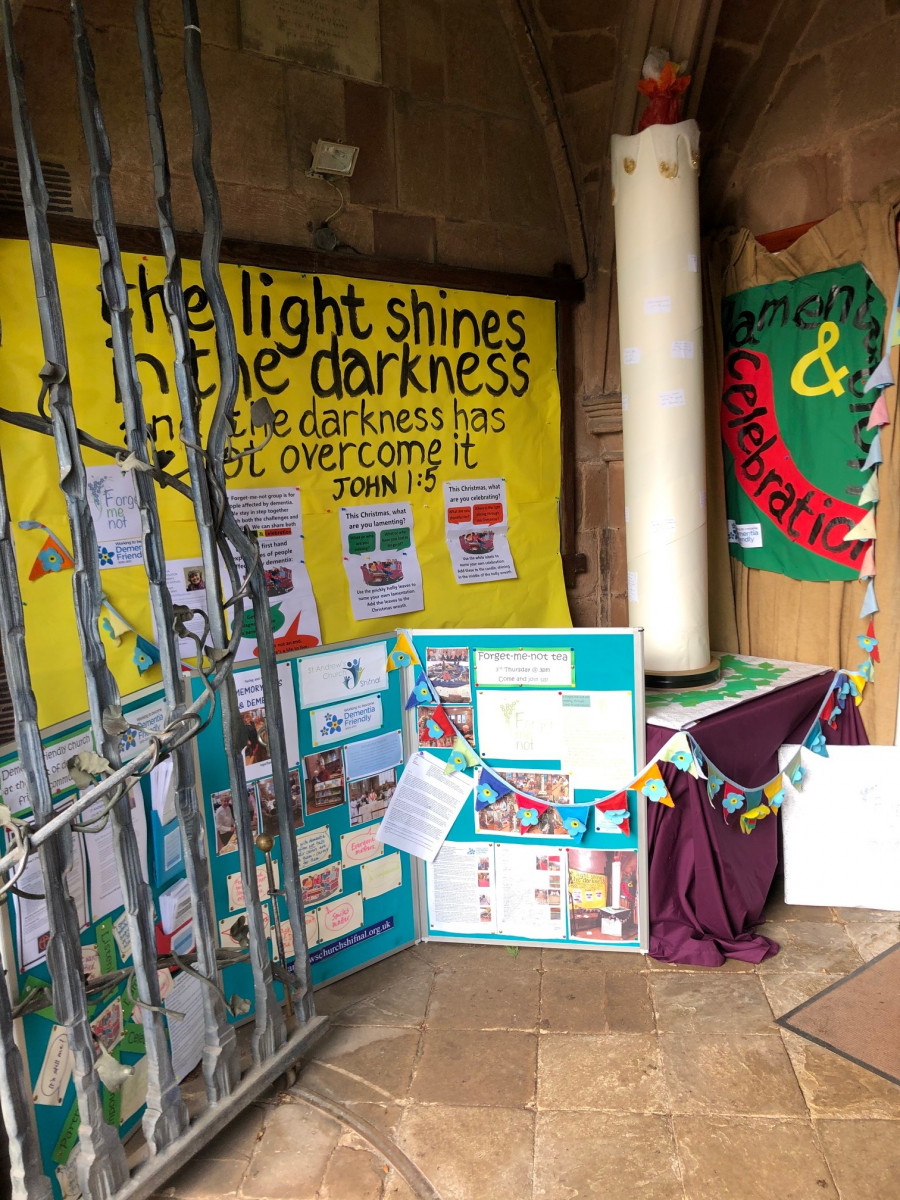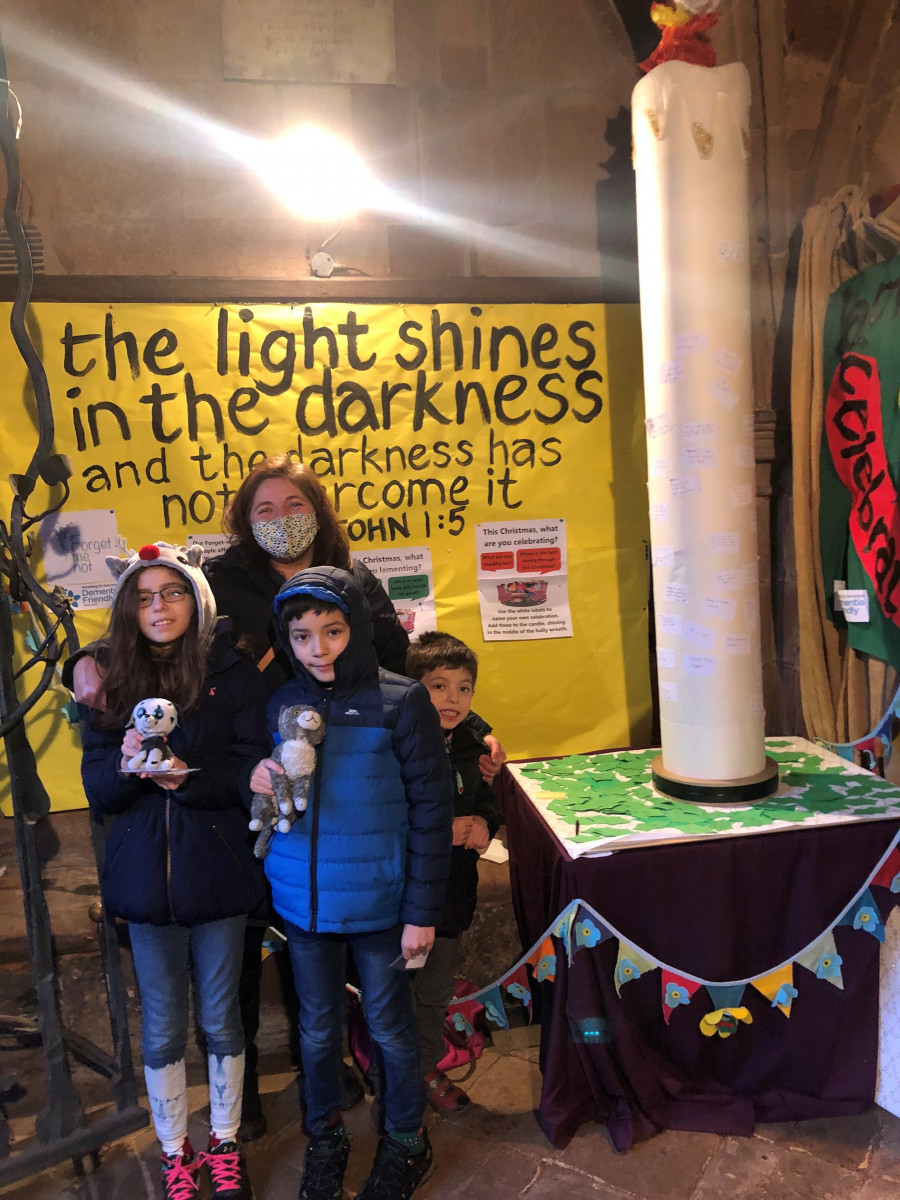Christma s holly wreath and massive candle
s holly wreath and massive candle
Dementia-friendly Churches Enabler, Sarah Thorpe, revels in a look back at one group was able to meet before Christmas:
Last month, when our church group for people affected by dementia met (in a Covid-safe way) for our Christmas 'Forget-me-not in Sixes' at St Andrew’s Church Shifnal, we used a holly wreath and a massive candle as a focus..
- Lamentation: Is there space to acknowledge the cost and challenge of life this year? What or who are you missing? What or who have you had to let go of? We wrote these on prickly holly leaves, to make the holly wreath. We included the names of our Forget-me-not group who have died in the last year. And we named the family and friends, the hugs and the gatherings that we are missing.
- Celebration: And is there also space to affirm the life each step of the way? What are you thankful for? Where is the light shining through this Christmas? We named our thankfulness for Christmas, for one another, for the love and care of family and friends, for the phone calls and Zoom calls and cards and doorstep visits we treasure. And we added these stickers to the massive candle, standing in the middle of the holly wreath.
 Community lamentation and celebration
Community lamentation and celebration
Reaching out, our Forget-me-not group shared our 'lamentation and celebration' station at the church door, to start our Nativity Trail through chuch. On Christmas Eve, 256 people shared the Nativity Trail, all spending time at stations telling the Christmas story and sharing a prayer at the crib. Just as we had done at Forget-me-not, everyone was invited to name their 'lamentation', writing what or who they were missing or had let go of this year on a prickly holly leaf to add to the holly wreath. And they were also invited to add stickers to the (massive!) candle, naming their 'celebration', things they were thankful for and places where the light was shining through.  This station affirmed that the light shines in the darkness and the darkness has not overcome it. One family had a young baby and both parents were hospital doctors: they were able to 'lament' the loss of work/life balance during the pandemic and also to 'celebrate' the local community in Shifnal and the green space around the town.
This station affirmed that the light shines in the darkness and the darkness has not overcome it. One family had a young baby and both parents were hospital doctors: they were able to 'lament' the loss of work/life balance during the pandemic and also to 'celebrate' the local community in Shifnal and the green space around the town.
New year lockdown learning
So where does this take us for 2021? Lamentation - it’s hard move into lockdown yet again as we start 2021 and we need to be able to say that it’s tough. Nevertheless, we can draw on learning from last year, to help us navigate this latest lockdown – both for ourselves and for people affected by dementia. Perhaps that’s where the celebration lies this time: we have some experience to help us navigate a path through. For people with dementia, this is the summary from a Colchester “Dementia Voices” Report (produced by Community 360) on the impact of the first lockdown gives helpful insights to take into our 2021 lockdown:
“Many of the common concerns… were similar to those that society as a whole faced: a lack of normal routine; boredom and frustration; fear and anxiety about the virus. But for people with dementia, these issues were intensified.
- The absence of a routine was highly disorientating… leading to increased isolation and a decline in wellbeing.
- With home visits stopped, there was an extra burden on family carers…there was simply no respite.
- It was a challenge for many people with dementia to understand and adhere to rules around shielding and social distancing.
But while [this] vividly demonstrated the additional challenges that Covid-19 created for people with dementia and their carers, perhaps the most heart-breaking feedback was from those – and there were several – who told us that lockdown actually hadn’t made much difference to them. They felt they had been living in lockdown for years.
There are of course some positives to be taken from recent months: many spoke of their gratitude to neighbours and their wider community for their assistance and compassion.”
There are signficant, intensified challenges for people affected by dementia through the continuing pandemic restrictions. And, in the fact of real challenge, phone calls and connections from neighbours and the wider community really do make a difference. Let’s reach out to keep connections – something as simple as a phone call or a card can make a real difference. I’m feeling the benefit of a call just now from a member of our Forget-me-not group who’s going to be 90 next week: she phoned me just to say we must stay positive through these challenging times. These are such important ways of helping the light to shine through the darkness.
And the Colchester Report finishes with a deeper challenge and opportunity for 2021:
“But perhaps the greatest positive could still be to come, if we can all build on our own lockdown experiences to have a deeper understanding of what living with dementia often means. Lifting that lockdown is an outcome we can all strive towards.”